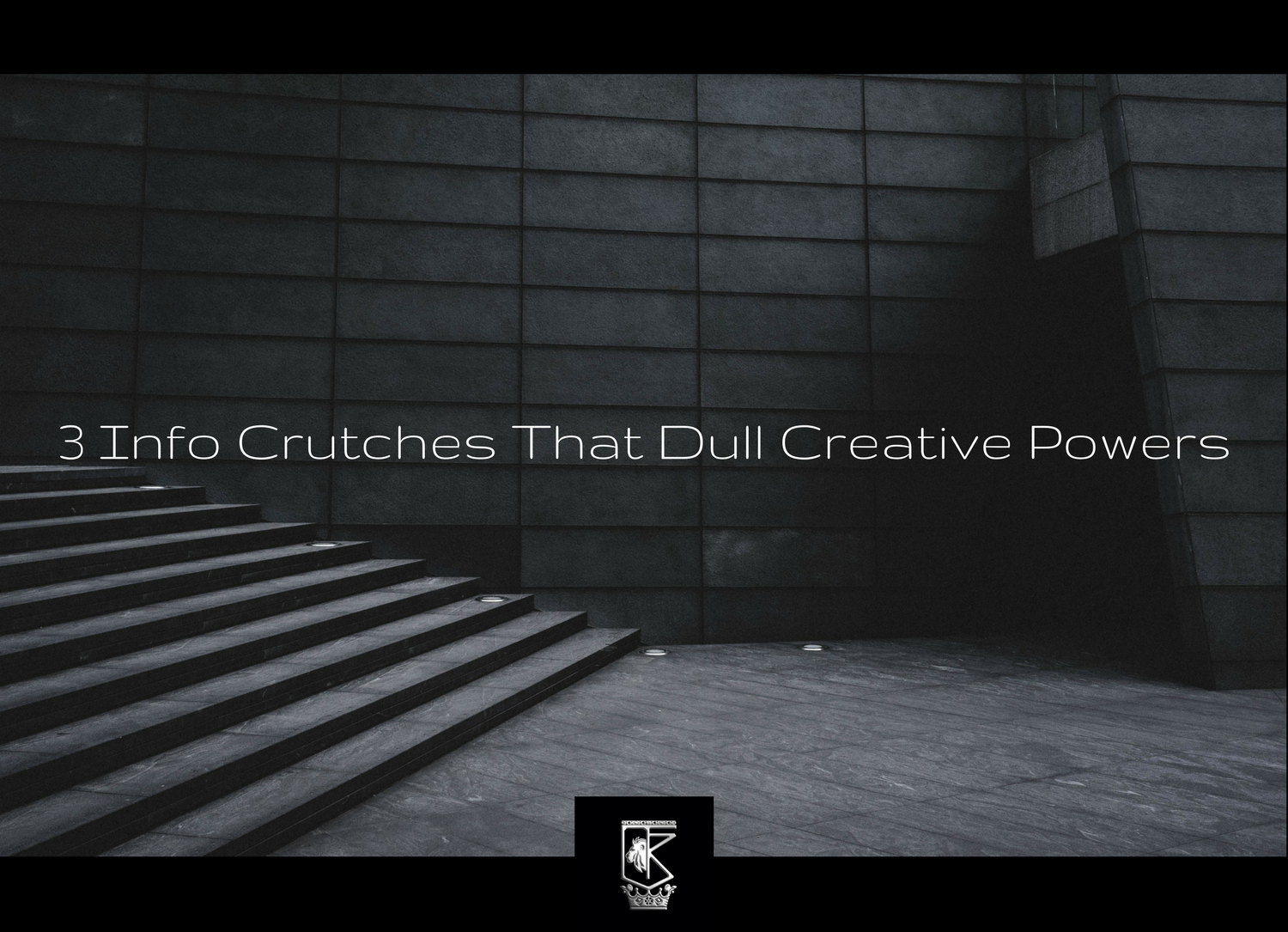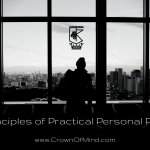We’re inundated with information today. In western society, access to the mobile phone provides access to information in all its colorful forms. Truth. Twists. Full-fledged falsehoods. We’re used to it.
What we’re also used to is the crutch-mentality this abundance delivers. The “crutch” in this sense is the reduced emphasis on challenging one’s mind to expand or think creatively. And critically.
Just like weights that feel heavier when we stop lifting for some time, or that set of 5 laps feels exhausting because we haven’t run in months, our brains dull when we don’t aim to sharpen them, consciously. These are 3 crutches I identify we’ll benefit from remaining wary of:
- The Internet: this vast source of information enables us to learn just about anything. What could be the problem? How could this be a crutch? If we don’t use it efficiently, with awareness, we can fall into the trap of relying on the net to give us easy answers. Of course, this robs us of the critical thinking experience that trains our minds to analyze, process, intuit, understand. I’m reminded of my first experience with the website Sparknotes back in high school. In an English class, we had an assignment involving a play. We had to read the play and answer questions based on what we read. One student, a more “advanced” student (he was left back 1-2 years) decided to skip this process of reading the play and picked up his understanding from the website Sparknotes. The website provides summaries, character analysis, plots, all the info needed in a bite-sized version. This student proceeded to print out pages from this site to answer the questions. He didn’t edit them. He literally printed the pages from the website and turned them in as his final project. That was the first time the teacher heard of the site and the first time I saw someone try to cut corners by using the Internet instead of reading. Needless to say, introducing Sparknotes to the teacher put the whole school on high alert for Internet plagiarism. Teachers knew now to check the website to see if students copied work. This was prior to the plagiarism-checker software available today (if you’re in an online college program, it’s likely your professor has a plagiarism-checker software. My master’s program gave us access to a checker so we could ensure our work was original. If we sent it in and the work still showed up plagiarized, you’re out). Fast-forward to present: we can pay people all over the world to write our essays, create our dissertations, pass our SAT’s for us. The trend is…while the net gives us amazing gateways into knowledge otherwise difficult to obtain, our misuse can entrain us to ignore the mental rigor of learning instead of just having information.
- Teachers: I value teachers, so much so that I hold the view teachers should be compensated on the level of corporate chief executives. CEOs are responsible for the overall success of a company and possibly hundreds of employees. Teachers are responsible for the guidance of hundreds of students’ minds for hours daily, who will grow up and apply that guidance in society. And like the Internet, teachers provide different flavors. We have wise ones, lazy ones, aspiring ones and those who adopt the title without truly understanding it. The kind of teacher that can hold your creative powers back is adamant about giving you the answers to your problems. This teacher’s method emphasizes ensuring you pass your tests and evaluations, and the most efficient path to that end is to rush you to have the answers as quick as possible. The sacrifice? Your understanding of the material and the decreased challenge to your creative thinking skills. By giving you the answer for the problem without challenging you, you are robbed of the character (and brain) development experience that manifests from you actually having to work to discover the solution. I propose this is one reason why “I hate math” is such a popular meme today. Math, like philosophy and the sciences, requires rigorous work ethic and the endurance to understand a concept. There may be stumps, inaccurate turns to find a solution. If the learner doesn’t develop the mental stamina, she will train herself to accrue a series of “incomplete” in her life.
- Hearsay or Word of Mouth, Mind Program. Giving validation to what we hear by word of mouth, without researching on our own to support it, is a surefire way to dampen creative powers. Other names for this include: herd mentality, sheep mentality, being a follower, ostrich with the head in the sand. Ultimately, listening to someone blindly quickly removes the need for creative, assertive thinking, the habit of taking a risk, because we can just take what we heard as truth and go with it. When the message is absorbed into the subconscious mind/spirit, it becomes an automatic mode of thought, a program or meme. This is the essence of a mind virus and they exist all around us.
Listen to my podcast below, where I expand on this with a specific focus on point number two.






